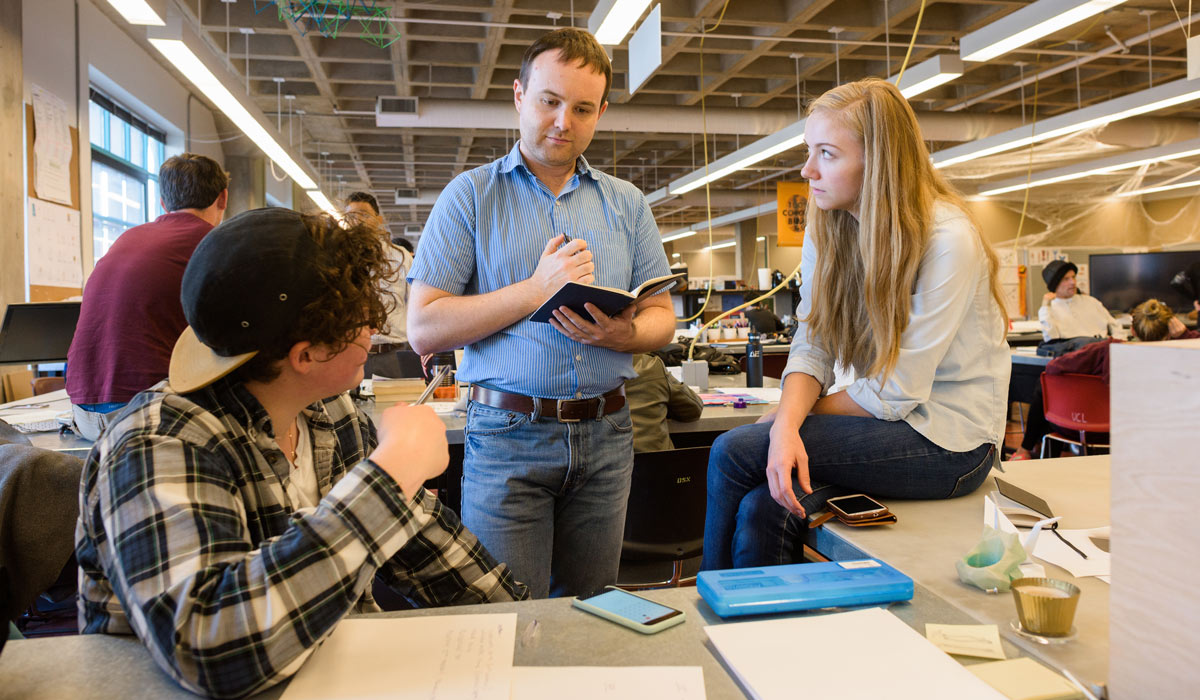Online Master of Science in Complex Systems Science
Arizona State University’s Master of Science in complex systems science focuses on theoretical foundations, modeling, problem solving, critical thinking and the importance of direct experience through research in the context of complex systems science. This program is the first of its kind and, through the curriculum, you’ll gain the ability to understand the interconnections within and between technological, economic, societal, biomedical and environmental systems. Upon graduation, you’ll have the knowledge and skills needed to contribute to practical and theoretical solutions in a vast number of areas.
Quick facts
Next start date: 08/20/2026
Total classes: 9
Weeks per class: 7.5
Total credit hours: 30
What is complex systems science?

Will my diploma say ‘online’?
No, Arizona State University’s diplomas don’t specify whether you earn your degree online or in person. All diplomas and transcripts simply say “Arizona State University.”
Complex systems science master's degree courses
Although all of the complex systems science courses have unique and exciting learning opportunities, an extremely relevant one in today’s world is Disease as a Complex System. Disease is a complex problem and this course analyzes multiple interconnected dimensions of disease. Some of what you’ll explore includes looking at disease from the molecular to the socio-economic, as well as the life of disease from causation to treatment and health care solutions from a complex systems science perspective. Program courses include:
Jobs a master’s in complex systems science prepares you for
The need to better understand complex systems is widely recognized. When you graduate with an advanced degree in complex systems science, you’ll have a multitude of career opportunities.
Complex systems science is foundational for all attempts to understand risk and security. As such, career options are available in fields including, but not limited to:
Study with leading experts to develop transdisciplinary solutions for environmental challenges
The College of Global Futures faculty includes internationally renowned thought leaders and researchers. This group of global scholars brings together leading experts to develop transdisciplinary solutions for the world’s most pressing social, economic and environmental challenges. Our faculty members prepare students to create long-lasting change and contribute to a positive future for people and the planet.
Study with leading experts to develop transdisciplinary solutions for environmental challenges
The College of Global Futures faculty includes internationally renowned thought leaders and researchers. This group of global scholars brings together leading experts to develop transdisciplinary solutions for the world’s most pressing social, economic and environmental challenges. Our faculty members prepare students to create long-lasting change and contribute to a positive future for people and the planet.
Master of Science in complex systems science admission requirements
Applicants must fulfill the requirements of both the Graduate College and the College of Global Futures. Applicants are eligible to apply for this program after earning a bachelor's or master's degree in STEM, economics, social sciences, humanities or a related field, from a regionally accredited institution.
Creating tomorrow’s solutions, today
The College of Global Futures is dedicated to building a sustainable and equitable future for the planet and society. These initiatives support ASU’s overarching commitment to innovation, research and delivering high-quality academic programs. ASU is recognized with peer-reviewed honors from U.S. News & World Report and receives accolades from other prestigious organizations.
#1
in the U.S. for innovation for 11 consecutive years, ahead of Stanford and MIT.
#1
university in the U.S. in pursuit of United Nations Sustainable Development Goals.
#1
“Cool Schools” for sustainability by Sierra Club for campus sustainability.
Top 10
best online bachelor’s programs.
Tuition calculator
Use our calculator to estimate your full-time or part-time tuition fees for this program prior to any financial aid. Keep in mind that most of our students receive financial aid, which can reduce out-of-pocket costs. Learn more.
Tuition calculator
Use our calculator to estimate your full-time or part-time tuition fees for this program prior to any financial aid. Keep in mind that most of our students receive financial aid, which can reduce out-of-pocket costs. Learn more.





